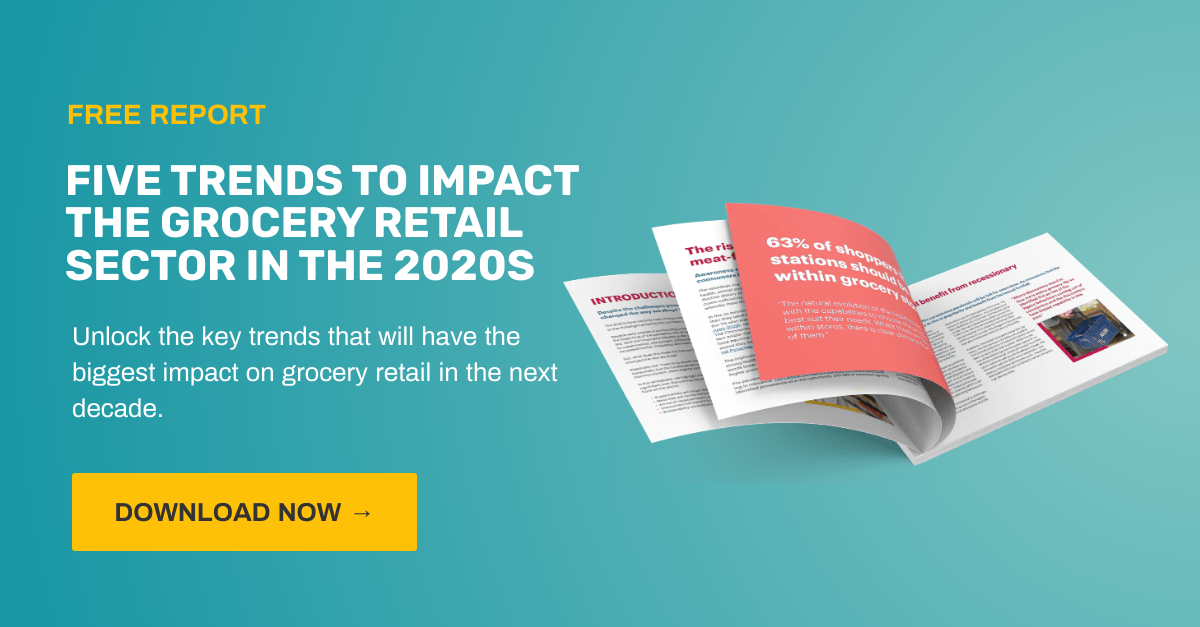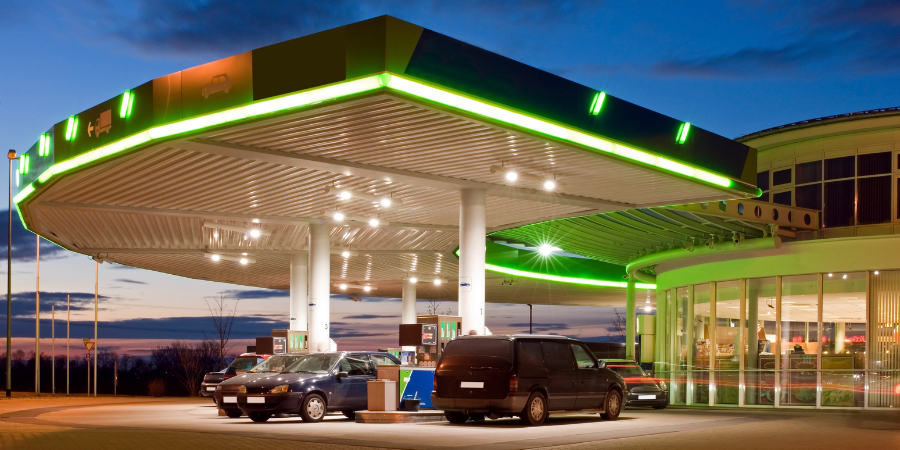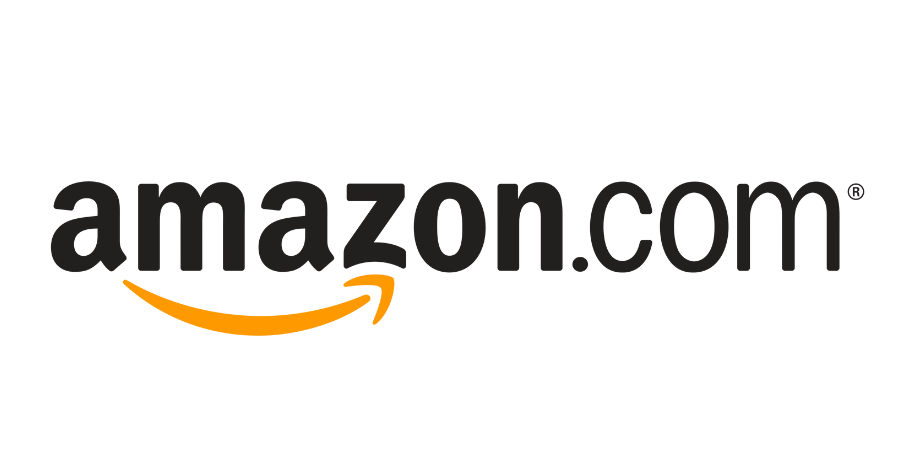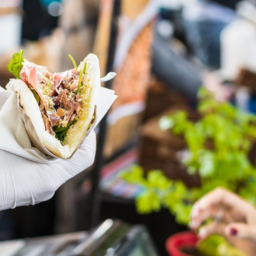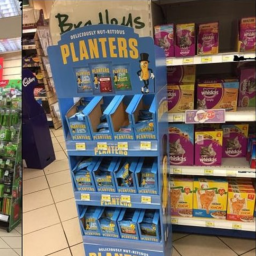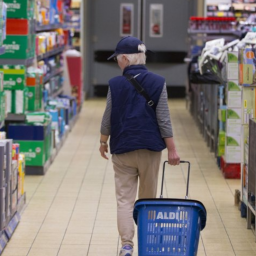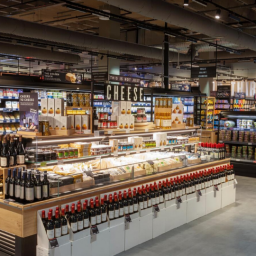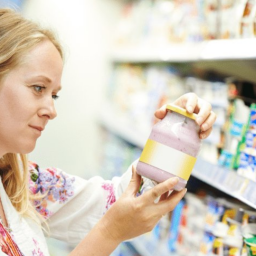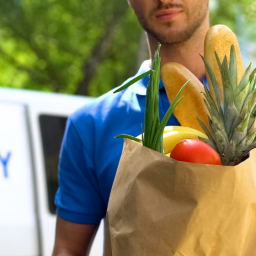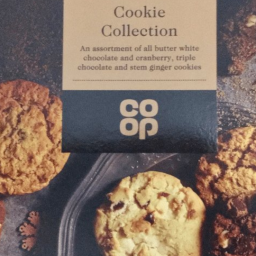
The 2020’s have certainly had a bumpy start, but the long-term trends for grocery retail have been reframed rather than gone away completely. In this whitepaper, Lumina Intelligence identifies five trends that we believe will be significant over the coming decade and we cast a critical eye on their potential implications on the sector.
Supermarkets will target takeaway
The leading supermarket chains have long been offering online ordering and will soon become an even bigger competitor for foodservice delivery. Many have cafés, restaurants and hot food counters. According to the Lumina Intelligence Foodservice Delivery Market Report 2019/20, the UK delivery market grew 18% to £8.4bn in 2019 versus 2018. Furthermore, expectations are for the foodservice delivery market to continue growing strongly over the next three years, with Lumina Intelligence forecasting a CAGR of 7.7%.
The pandemic will only serve to fuel this growth in delivery as consumers seek to treat themselves – and for much of 2020 at least, dine-in options have been limited. In a similar vein, supermarket in-store cafes are now increasingly banking on takeaway trade. Following the closure of these units for many months during lockdown, many have reopened but with a focus on takeaway – which will be an important change for the short term future as shoppers are reluctant to dwell.
For a similar reason, as well as hygiene concerns, many grocers temporarily shut their fresh food counters during the pandemic. Whilst some retailers (Waitrose, Morrisons) are committed to their long term success, Sainsbury’s has announced the closure of its fresh meat, fish and deli counters. However, its pizza counters will continue to operate. In a similar move, Asda will replace its meat and fish counters with food for now stalls in 150 stores.
We’ve already seen supermarket chains partnering with the delivery aggregators (at least on a trial basis) to deliver groceries, including Asda and Uber Eats, Morrisons and Deliveroo. It appears a natural extension to form an ‘extended life intermediary service’ to help fulfil a wider spectrum of food & beverage requirements of busy householders. It is also not too much of a leap for this to potentially encompass some form of dark kitchen/virtual brands too as supermarkets look to reconfigure excess, under-utilised superstore space.
Meat-free will be the default option
The relentless rise of growing consumer responsibility around more personal health, animal and planetary welfare will catalyse further growth in meat-reduction dietary preferences. Vegetarianism and veganism will potentially become sufficiently popular normal practices that a tipping point will be reached whereby meat dishes become the versions consumers ‘opt-in’ for.
In the six months to February 2020, 23% stated that they were eating less meat than they used to, and 2% of UK adults became vegetarian or vegan, adding to the 7% who stated they already were (Lumina Intelligence Channel Pulse February 2020), clearly highlighting the shift towards plant-based consumption.
The Coronavirus pandemic, commonly thought to have originated from contact and/or consumption of animals, has furthered this movement. Consumers have become more conscious about their consumption and in May 2020 16% stated they were eating less meat than in February (Lumina Intelligence Channel Pulse May 2020).
The implications for the farming industry will clearly be immense, but the strong likelihood is that meat consumption will decrease, and will migrate towards lower quantity, but higher quality, more premiumised product with even higher provenance and sustainability credentials.
Pre-pandemic the importance of local and quality were both obviously growing in relevance. The Lumina Intelligence Menu & Food Trends Report 2019 identified provenance as a real opportunity, with 29% of consumers agreeing that operators should put a greater focus on locally sourced products, and the Lumina Intelligence Convenience Market Report 2019 showed that quality of fresh meat and fish, quality of fresh fruit and veg and quality of fresh bread and bakery were the three in store KPIs that returned the highest annual increases in importance.
However, once again, the pandemic has contributed to further growth of these trends: One in 5 claimed to be purchasing local more in lockdown (Lumina Intelligence Recovery Report 2020) and the same number were buying better quality food and drink (Lumina Intelligence Channel Pulse).
The sheer volume of plant-based and vegan NPD hitting the sector is gathering pace and will need skilful demand assessment and shelf-space management in both foodservice and retail. Certainly, demand will be stronger in catchments with higher proportions of younger adults, as opposed to those with a far more elderly skew.
Arrival of targeted health specialist products and services
Thinking about how healthier eating is going to evolve, a logical next step is with more personalised and prescriptive food & beverage intake. Refill stations in stores are becoming more and more common and provide shoppers the opportunity to purchase products and quantities that are tailored to their needs. The Lumina Intelligence Future of Convenience Report 2020 indicates that 63% of shoppers think refill stations should be available within grocery stores. In March 2020, the Coronavirus pandemic slowed their use due to hygiene concerns, but this shift away has not been and will not be permanent.
In many ways this will be a second coming of ‘functional foods’, but with improved timing through more engaged and better-informed consumer audiences. Younger customers will be more knowledgeable via more widely accessible nutritional and allergy-related information and because of greater understanding of the advantages and disadvantages of plant-based diets. The Lumina Intelligence Convenience Market Report 2019 highlights that 45% of consumers are already actively trying to make healthier choices when it comes to diet. Furthermore, Lumina Intelligence’s Channel Pulse has tracked that three in 10 are eating and drinking more healthily since the start of the pandemic.
Scientific advances will open-up more prescriptive benefits for more niche consumer segments with specific conditions, along with targeted advantages for older consumers. Food and drink products specifically developed to improve energy levels, sleep quality, gut health, mental functionality and mobility, and to provide pain relief, will all become more popular. New product categories will emerge in supermarkets, and there will be growing numbers of dedicated health food shops and of more specialised cafés.
Discounters will benefit from recessionary impact
Over the past decade, one of the most seismic events within grocery retailing has been the rise of the discounters. After significant physical expansion, Aldi and Lidl now have a combined grocery market share of 14%, up from just 5% in 2010. A figure of 20% is by no means an unrealistic expectation by 2030. This growth forecast has several implications. It is going to require further physical expansion, particularly within London and the South-East, but will also more focus upon high street sites nationally.
The economic impact of the coronavirus pandemic will be felt for some time, with most estimates suggesting three to five years. Consumer confidence will remain low, with increasing unemployment and a close eye on household budgets. As such there is high shopper intention to increase price checking activity and cook from scratch. These factors play into the hands of the discount channel, which is set to benefit from recessionary spending behaviours.
Where discounters stand to lose out is online grocery. We’ve identified this as one of the legacy behaviours coming out of coronavirus and the discounters have limited capability in this area. The issue is of course profitability – the complexities of last mile delivery do not sit well with the discounter model. Aldi has trialled click & collect and quickly rolled it out, with the service expected to be available at a quarter of its stores by Christmas 2020. Unlike some of its rivals, Aldi charges for the service, arguably a necessary move to retain profitability.
In addition, the retailer has a partnership with Deliveroo, but this service is currently only available from a small proportion of stores and roll-out has not been as rapid as for click & collect. Whilst this service allows Aldi to tap into consumer desire for ‘on demand convenience’, prices are subject to a mark up vs. instore as well as a £4.99 delivery charge. This somewhat eats into Aldi’s value credentials – and paying a third party will hamper profit – therefore we’d expect this route to market to remain limited to high density cities.
Sustainability considerations acquire business-critical importance
It is difficult not to agree that in 10 years’ time, more of us will be more worried about climate change than is currently already the case.
Pre-pandemic, we were in the midst of a consumer-led revolution about the use of plastic, and grocery industry stakeholders were becoming increasingly mindful about their environmental impacts to not only avoid a consumer backlash, but also to better position themselves to capitalise on the gathering momentum behind more responsible consumerism. The Lumina Intelligence Future of Convenience Report 2019 highlighted that 65% of shoppers thought plastic free aisles made a store more appealing.
However, this unprecedented year shook plastic-reduction progress, and we saw countless cases of “clean” leapfrogging “green”. Coffee shops stopped accepting reusable cups, the single-use plastic bag charge for online grocery was scrapped in order to speed up deliveries and reduce contamination, and the UK’s ban on plastic straws, stirrers and cotton buds was delayed for six months “to avoid additional burdens for firms at this challenging time”, just to name a few.
Yet, these problems aren’t going away, and as the dust is beginning to settle consumers are refocusing their attention – arguably encouraged a little or a lot by David Attenborough’s latest Netflix resurgence – with their agendas going beyond plastic. In fact, 24% claim they are thinking more about the environmental impact of their food and drink (Lumina Intelligence Channel Pulse May 2020).
The 2020s will increasingly see consumers demand values alongside value, meaning that sustainability will increasingly guide business decision-making as companies look to reaffirm their various commitments to the environment, community and to investors. Sustainability audits and reporting will become more commonplace, and more operators will ensure they are not left behind regarding best practices.


